- Home
- D. H. Lawrence
Twilight in Italy
Twilight in Italy Read online
D.H. Lawrence (1885–1930), novelist, poet, playwright, painter, critic, is an icon of twentieth-century literature. He began writing at an early age, publishing his first novel, The White Peacock, when he was twenty-five, Sons and Lovers two years later and The Rainbow and Women in Love in his thirties. His hatred of militarism, openly expressed during the First World War, stirred a wave of vilification that forced him to leave England and embark on what he called his “Savage Pilgrimage”. He spent the remainder of his life travelling – to Italy, Sri lanka (then called Ceylon), Australia, Mexico and the south of France – and it was during this time that he wrote such classics as Sea and Sardinia, The Plumed Serpent and Lady Chatterley’s Lover. With the exception of E.M. Forster, who called him “the greatest imaginative novelist of our generation” and friends such as Aldous Huxley, Lawrence’s obituarists were dismissive and hostile. It was not until the Lady Chatterley Trial thirty years after his death and the subsequent publication of the book that Lawrence was finally recognised as one of the great writers and thinkers of his age.
Also published by Tauris Parke Paperbacks
Mornings in Mexico
Etruscan Places
“If this is travel writing, it is travel writing in excelsis – beyond the spectacle, beyond the experience, beyond even the interpretation, into profounder conclusions of the spirit.”
Jan Morris
“It cannot be read as an ordinary travel book, for his voyage is philosophic, as well as a symbolic and sensuous one.”
Anaïs Nin
“The sharpness of Lawrence’s eye is incredible … brilliantly informative, educative, entertaining and moving.”
Anthony Burgess
Tauris Parke Paperbacks is an imprint of I.B.Tauris. It is dedicated to publishing books in accessible paperback editions for the serious general reader within a wide range of categories, including biography, history, travel and the ancient world. The list includes select, critically acclaimed works of top quality writing by distinguished authors that continue to challenge, to inform and to inspire. These are books that possess those subtle but intrinsic elements that mark them out as something exceptional.
The Colophon of Tauris Parke Paperbacks is a representation of the ancient Egyptian ibis, sacred to the god Thoth, who was himself often depicted in the form of this most elegant of birds. Thoth was credited in antiquity as the scribe of the ancient Egyptian gods and as the inventor of writing and was associated with many aspects of wisdom and learning.
TWILIGHT IN ITALY
D.H. Lawrence
Introduction by Jan Morris
New paperback edition published in 2015 by
Tauris Parke Paperbacks
An imprint of I.B.Tauris & Co Ltd
London New York
www.ibtauris.com
First published in Great Britain by Gerald Duckworth & Co. Ltd, 1916
Copyright Introduction © 2015 Jan Morris
All rights reserved. Except for brief quotations in a review, this book, or any part thereof, may not be reproduced, stored in or introduced into a retrieval system, or transmitted, in any form or by any means, electronic, mechanical, photocopying, recording or otherwise, without the prior written permission of the publisher.
ISBN: 9781780769653
eISBN: 9780857739896
A full CIP record for this book is available from the British Library
A full CIP record is available from the Library of Congress
Library of Congress Catalog Card Number: available
Contents
Introduction by Jan Morris
The Crucifix Across the Mountains
Part I On the Lago Di Garda
1 The Spinner and the Monks
2 The Lemon Gardens
3 The Theatre
4 San Gaudenzio
5 The Dance
6 Il Duro
7 John
Part II Italians in Exile
8 Italians in Exile
Part III The Return Journey
9 The Return Journey
Introduction
by Jan Morris
This book is generally defined as D.H. Lawrence’s first travel book, supplementary to his immense oeuvre as poet and novelist, and is often largely ignored by critics and scholars. I think of it, though, as having an importance all its own. It was an early example of an altogether different genre of literature: a book of travel that is not chiefly about travel, but is a work of art using a particular place, at a particular time, as a sounding-board for the writer’s profoundest creative instincts and techniques – part introspection, part philosophy, part lyricism, part sociology and only incidentally topography. Twilight in Italy is metaphysical reportage!
Lawrence wrote it in 1912, and by then many books of travel, of varied sorts, had entered the standard canon of English literature, from Smollett’s Travels through France and Italy, 1766, or Sterne’s A Sentimental Journey, 1768, to Kinglake’s Eothen, 1844, or Robert Louis Stevenson’s Travels with a Donkey in the Cevennes, 1879. But it is perhaps fair to claim that Twilight in Italy was the first of its kind to enter the classic register.
Lawrence was 27 at the time, had published a single novel, and had only recently been out of Britain for the first time in his life. That original foreign excursion, however, was sufficiently stimulating. In May 1912, having broken off an earlier engagement, he had eloped with Frieda Weekley, née von Richthofen, the dissatisfied German wife of his modern language professor at University College, Nottingham. They made a curious couple. She was six years his senior, the mother of three children, born of a diminished aristocratic and military family from Alsace-Lorraine, whose tastes were libertarian but whose baronial titles meant much to her. He was the feverishly intellectual, poetical and highly-sexed son of an almost illiterate miner in the industrial English Midlands. In posed photographs of them the pair look touchingly incongruous. He is lanky, thin, bearded and apparently brooding: she looks almost folksy, wearing confused costumes that she might well have made herself.
They ran away first to Frieda’s home in Germany, where they enjoyed a frequently stormy neo-honeymoon (her divorce was not to come through for another two years, and they were married three months after that). Then, in August 1912, they made their way, almost penniless and partly on foot, across the Alps into Austria and Italy: and it is this wayward, romantic and somewhat haphazard progress, by a couple almost fictionally mismatched, that provides the substance of Twilight in Italy.
Qua travel book, in generally accepted terms, it is a deception. It does not really recall a journey or describe a country. Its geography is loftily imprecise. Often enough readers cannot be sure where the narrative has taken them, and sometimes we are not even certain what country we are in. Lawrence indulges himself in generalizations about races and nationalities, and in character portraiture which, however fresh it may, have seemed to the 27 year old from Nottinghamshire in 1912, sometimes seems perilously close to stereotyping now.
The book was conceived as a series of essays. It was written under the shadow of the impending First World War, which was so soon to envelope all Europe, and in the aftermath of a personal tragedy – the recent death of Lawrence’s adored mother. Heightened as the experience of the journey was by these circumstances, by the drama of the elopement and its aftermath, by the passionate stimulations of a new union that was to last tumultuously for the rest of Lawrence’s life, it is no surprise that the work is tremendously vivid in its responses and its expressions. It is not great travel writing – it is hardly travel writing at all: but it is an intense new kind of literature, and a forewarning of genius.
Despite the book’s title, its introductory essay is not about Italy at all. It concerns Lawrence’s responses
to the people of the Bavarian and Tyrolean highlands, as represented by the scores of wayside crucifixes that he and Frieda encountered at the start of their pilgrimage – for it was a kind of vague pilgrimage that they were undertaking. Some of those sacred shrine-images were crude but movingly sensual, some were tragically tremendous. There was a little dreaming Christ, in a cloak of home-stitched flannel, but there were also figures of vulgar sensationalism, all blood and mutilations, and the essay ends with a primitive crucifix, high among the snow peaks, whose uncouth wooden Christ has fallen off the cross, and lies grotesquely on its back on the ground below.
The arms of the fallen Christ had broken off at the shoulders, and they hung on their nails, as ex-voto limbs hang in the shrines … I dared not touch the fallen body of the Christ, that lay on its back in so grotesque a posture at the foot of the post. I wondered who would come and take the broken thing away, and for what purpose.
These holy emblems, Lawrence suggests, set against their glorious mountain backgrounds, illustrated “the strange beauty and finality and isolation of the Bavarian peasant”. Death and the fear of death, the subject of those crucifixes, governed their lives. But perhaps he was thinking prophetically, too, about the carnage of the war that was so soon to fall upon Europe, and all the sad crucifixes and dismembered bodies that would disfigure half the continent then.
This opening essay is nothing to do with Italy, except that those figures of northern folk-culture stand on the ancient route that Lawrence liked to think of as the Imperial Road to the south, to the sun, out of one sensibility to another. But it is like a warning of what is to come later in the work: nine further essays full of inspired prose, arcane ideas, challenging opinions, sometimes tiresome theories – and premonitions.
∗ ∗ ∗
Premonitions of what? One must work to find an answer. The book approaches fulfilment only when the Lawrences have spent some months in Italy. They stayed for a time at Riva at the head of the lake, which was then under the rule of the Austro-Hungarian Empire, but presently crossed the Italian frontier to find themselves a house at the fishing village of Gargnano, on the lake’s eastern shore. This was more thoroughly Italian. Gone were the solemn beauties of the north, where “a man must needs live under the radiance of his own negation”. Here the public radiance was generous, and Life rather than Death was the leitmotif. The Lawrences spent the best part of a year on Lake Garda, while Lawrence not only wrote much of his next novel, Sons and Lovers, but also gathered the material for the properly opening essay of Twilight in Italy, and the six that follow it.
One must immerse oneself, I suggest, in the book’s rich and sometimes impenetrable style before even trying to disentangle a master-theme. All the complex fascinations of Laurentian thought that were later to make his prose and his poetry famous are here, as it were, in embryo, and so are all its difficulties and pretensions. A virtuoso mastery of metaphor is mingled with opaque excursions into dialectic, and throughout the work there are the undertones of the sensual and the sexual that the world would later expect from the author of Lady Chatterley’s Lover. And every essay contains an embedded quota of philosophical dogma – some sort of message, in fact.
There is no pretending that Twilight in Italy is an easy read – it is the very opposite of what would now be called a “travelogue”. But after the strange death-impact of those Bavarian crucifixes, grotesque, tragic, pathetic, ironic, the other essays of the book are concerned with life, and their binding emotion is Lawrence’s love of nature. He is, one feels, not too keen on stark mountain landscapes, but he relishes softer, greener, suggestive places, like the deserted lemon gardens high above the lake that were the setting of his second essay. They are just his style, in their mingling of the lush and the allegorical – for the lemon was first brought to Lake Garda, legend said, by Francis of Assisi:
Between the lemon trees, beside the path, were little orange trees, and dozens of oranges hanging like hot coals in the twilight … The many ruddy-clustered oranges beside the path remind me of the lights of a village along the lake at night, while the pale lemons above are the stars. … There is a great host of lemons overhead, half-visible, a swarm of ruddy oranges by the paths, and here and there a fat citron. It is almost like being under the sea.
Time and again, one feels, he identifies himself with Nature, sometimes in passing imagery, sometimes in passages of such delicacy that he really does seem to hold infinity in the palm of his hand … At one end of the scale he is intimate with Heaven. He sees the sky in winter as being “strange and proud”, until in the evening it gleams like “the presence of a host of angels in … rapturous chorus”. He sees the sun, rising through a misty morning, as being like the beginning of the world. At the other end of the scale he consorts with flowers as equals. Cyclamens, in his eyes, “brood like little chill fires”. Christmas roses, when their time comes, “rise up, they throw up their crystal, they become handsome, they are heaps of confident, mysterious whiteness”. With the creatures of the animal kingdom, too, he seems intimately acquainted, and they often enrich his imagery. Birds of prey are familiars of his prose, and goats he seems to know particularly well because of the look in their eyes, variously described as being half-diabolic, half-tortured, pale, steady and inscrutable … But fascinating as Nature was, and Infinity sublime, always in his mind was premonition, intermittently linked with the drab squalor of the industrial society he had left behind in Nottinghamshire:
What should become of the world? There was London and the industrial counties spreading like a blackness all over the world, horrible, in the end destructive. And the Garda was so lovely under the sky of sunshine, it was intolerable. Far away, beyond, beyond all the snowy Alps, with the iridescence of eternal ice above them, was this England, black and foul and dry, with her soul worn down, almost worn away. And England was conquering the world with her machines and her horrible destruction of natural life. She was conquering the whole world. She had conquered the natural life to the end: she was replete with the conquest of the outer world, satisfied with the destruction of the Self.
∗ ∗ ∗
It seems to me that Lawrence’s relationships with animals of his own kind are essentially analytical, without the empathy that makes him seem so intimate with the rest of Nature. He views most men and women clinically or perhaps ideologically, with a narrow focus. The revealing essay entitled “The Theatre”, the fourth in the book, is concerned in its entirety with three performances in Gargnano’s local theatre, a disused church, by a touring company of semi-professional actors. The plays were Ibsen’s Ghosts, a poetic drama by D’Annunzio and a climactic Hamlet.
All the actors and all the theatre-goers were essentially peasants, and Lawrence analyses them all in detail, from the life. He starts with the polite bows exchanged among the village worthies – the barber, the chemist, the hotel-keeper, who wears a beaver shoulder-cape, the portly magistrate who is very self-important and has a long brown beard (“I cannot tell why I hate the village magistrate”). There follows a more general tour-d’horizon, taking in fishermen, soldiers of the bersaglieri with grey cloaks and feathered hats, lounging young bloods and a few brazen young women, and a series of interpretative personal portraits.
Here for instance is the actor-manager, a vigorous man of 38, dark, ruddy and powerful, flaunting and florid, but with a secret sickness that oppresses him, “a kind of debility in the soul”. Here are the bersaglieri, sitting close together in groups. They have close-cropped, dark, slightly bestial heads and thick shoulders, and when the performance is over they pick up their cherished feathered hats in unison, fling on their cloaks and run all the way back to their barracks (for the corps did everything at the double).
A thin man down from the hills seems to have gathered his wife and child together into another, finer atmosphere, like the air of the mountains, and to guard them in it. He looks wild and untamed, but fierce with love. When he goes out and buys a bottle of lemonade, th
e mother and child sip it in tiny sips, while he bends over them “like a hawk arching its wings”.
Here are the women of the village, perfectly dressed, hair gleaming, backs very straight, heads carried tensely. “They are not very noticeable. They seem held in reserve … Some strange will holds the women taut”. And here are those young men at the back of the theatre: they have a week’s growth of beard on their chins, because it is Saturday evening and they only shave on Sundays, but they are very clean, in clothes as in person.
They have dark, soft eyes … they move … with loose, heedless motion … lounge with wonderful ease against the wall … unconscious of the patches on their clothes or of their bare throats, that are knotted perhaps with a scarlet rag … There is a pathos of physical sensibility and mental inadequacy. Their mind is not sufficiently alert to run with their quick, warm senses.
I suppose one might, at a pinch, call all this travel writing, but it is embedded in very different matter – analytical, speculative, confessional. The theatre is extended, as it were, far beyond its walls, into more ethereal constructions. Now we see things that we could never see during those performances. For instance, we witness one of those women leading her drunken husband home after the performance to the beating she can expect. We witness the paradoxical passion that unites them nevertheless, brought together in their love of a child which is essentially a spiritual rather than a carnal love; and so we are introduced to that old Italian theme, the supremacy of Motherhood. It is almost a cliché nowadays, but perhaps in 1912 it was something new to be told that in Italy the woman was the law-giver of family life.
It was the age of Freud and Jung, and the book is rich in analyses and introspections. What “travel writer” would discover, in such a visit to a country theatre evidence too of phallus-worship in the Italian temperament, suppressed because of that maternal supremacy? And from this conclusion, go to surmise that Italian males have an unashamed enthusiasm for war? We see those bersaglieri in a new light now, “like young male caryatides … [in] a sort of physical trance … in love with one another”.

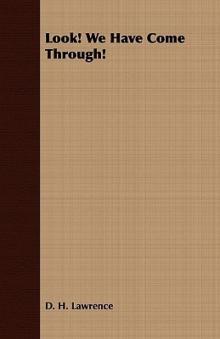 Look! We Have Come Through!
Look! We Have Come Through!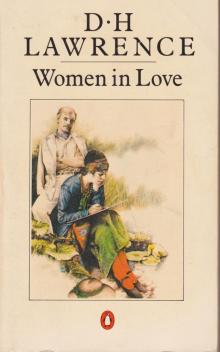 Women in Love
Women in Love The Ladybird
The Ladybird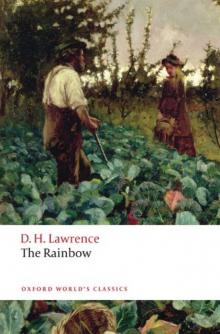 The Rainbow
The Rainbow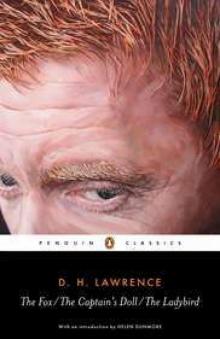 The Captain's Dol
The Captain's Dol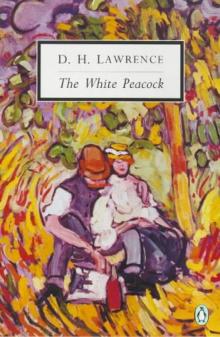 The White Peacock
The White Peacock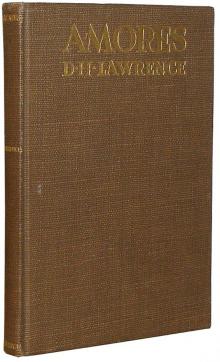 Amores
Amores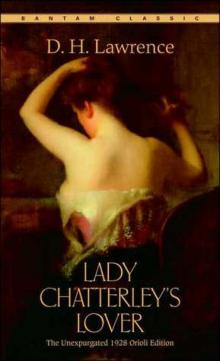 Lady Chatterley's Lover
Lady Chatterley's Lover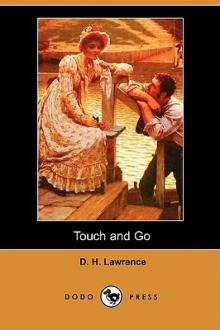 Touch and Go
Touch and Go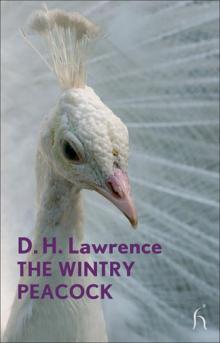 The Wintry Peacock
The Wintry Peacock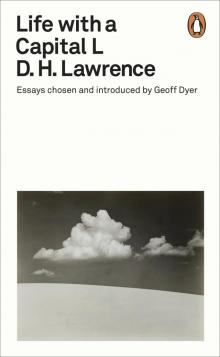 Life with a Capital L
Life with a Capital L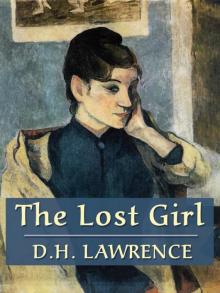 The Lost Girl
The Lost Girl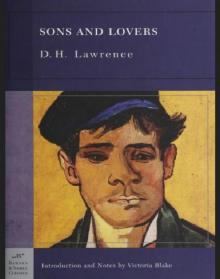 Sons and Lovers
Sons and Lovers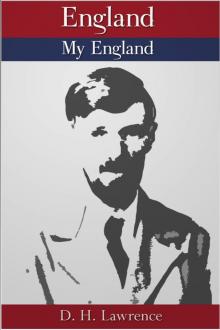 England, My England
England, My England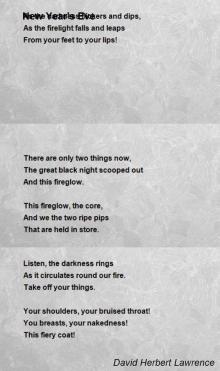 New Poems
New Poems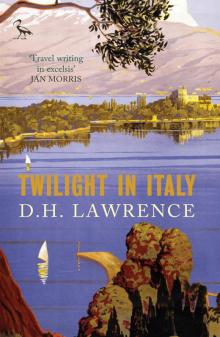 Twilight in Italy
Twilight in Italy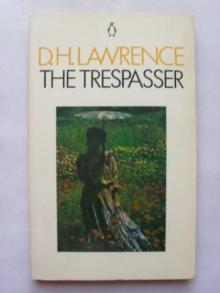 The Trespasser
The Trespasser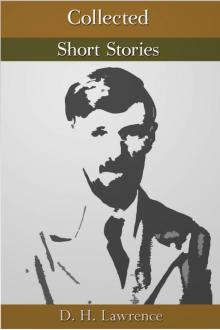 The Collected Short Stories
The Collected Short Stories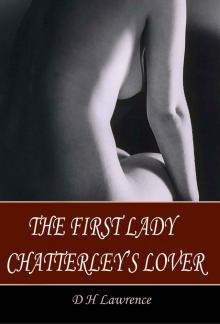 The First Lady Chatterley's Lover
The First Lady Chatterley's Lover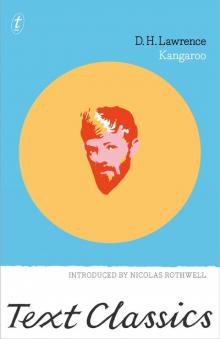 Kangaroo
Kangaroo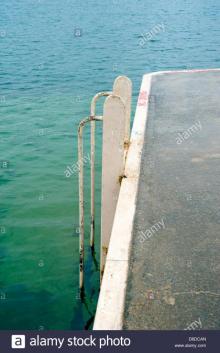 Bay
Bay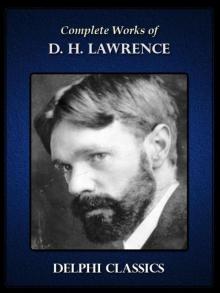 Complete Works of D.H. Lawrence
Complete Works of D.H. Lawrence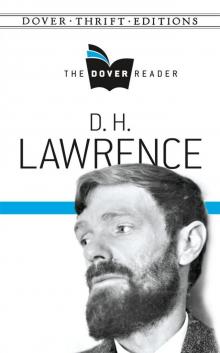 D H Lawrence- The Dover Reader
D H Lawrence- The Dover Reader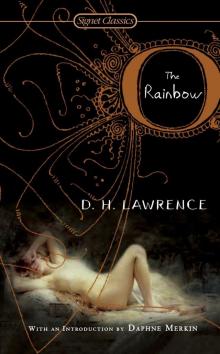 The Rainbow (100th Anniversary ed.)
The Rainbow (100th Anniversary ed.)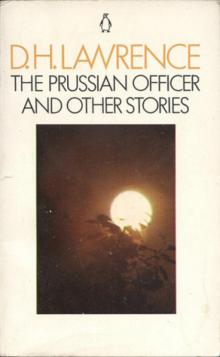 The Prussian Officer
The Prussian Officer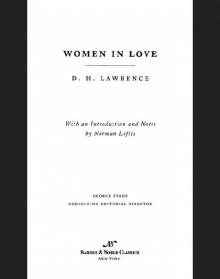 Women in Love (Barnes & Noble Classics Series)
Women in Love (Barnes & Noble Classics Series)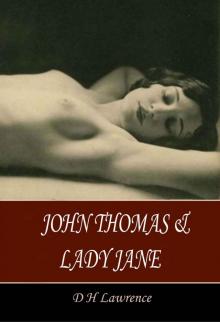 John Thomas and Lady Jane
John Thomas and Lady Jane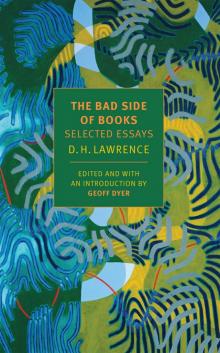 The Bad Side of Books
The Bad Side of Books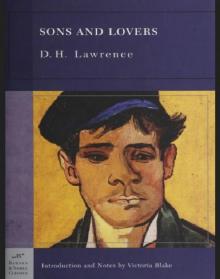 Sons and Lovers (Barnes & Noble Classics Series)
Sons and Lovers (Barnes & Noble Classics Series) Selected Stories
Selected Stories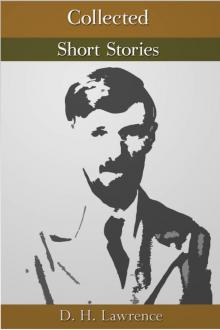 Collected Short Stories
Collected Short Stories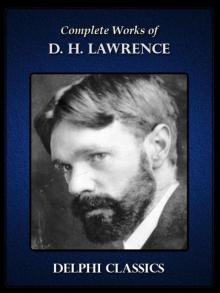 Complete Works of D.H. Lawrence (Illustrated)
Complete Works of D.H. Lawrence (Illustrated)